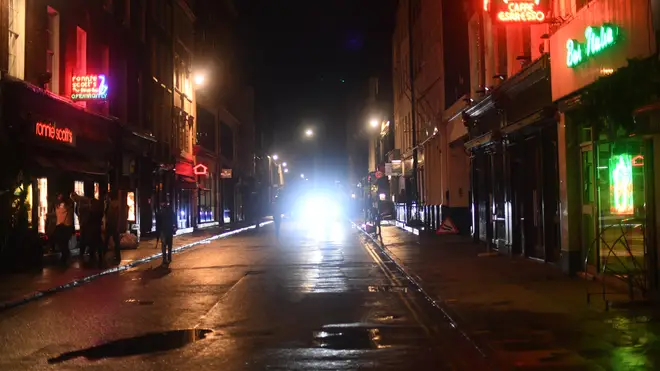
Richard Spurr 1am - 4am
9 October 2020, 20:04

The UK’s nightspots have been closed since late March.
Britain’s nightclubs have cautiously welcomed the Government’s decision to include them in the latest coronavirus support package but fear it will not be enough to save the sector from collapse.
Nightclubs are one of the few areas of the economy that have not yet been allowed to reopen in any capacity since lockdown was first imposed in late March.
On Friday, Chancellor Rishi Sunak unveiled his new Job Support Scheme (JSS) designed to help businesses that are forced to close due to localised lockdowns in the coming months.
The Night Time Industries Association (NTIA) said it “tentatively welcomed” the announcement, but warned thousands of venues have been left hanging by a thread.
It said many people within the industry were in a state of “desperation and despair” as they face financial ruin, and said the extra funding was “too little, too late”.
The JSS will see the Government pay two thirds of each employee’s salary – up to a maximum of £2,100 a month – if their employer is legally forced to close because of restrictions.
It will launch on November 1 and last for six months, Mr Sunak said, and is designed to get UK business through a potentially difficult winter.
Employers will not be required to contribute to wages, but only to cover national insurance contributions and pension contributions.
In addition, the Government is increasing cash grants to businesses intended to cover fixed costs up to £3,000 per month paid in fortnightly instalments.
The level of grant each business gets will be linked to the rateable value of its premises – an estimate of its annual rental value if it were available on the open market.
Previously, businesses were only entitled to a maximum of £1,500 paid every three weeks.
Michael Kill, chief executive of the NTIA, said: “While we appreciate the very difficult situation the Government finds itself in and the challenge of providing financial support for employees and businesses facing local lockdowns and closures, we believe that this has not gone far enough to safeguard our sector.
“Considerable concerns remain over the future of the night-time economy, with many businesses and staff concerned about how they will survive this autumn and winter.”
He continued: “Most businesses and workers in the sector remain in desperation and despair, with no sector-specific or Government understanding of the underlying issues the industry is facing or the financial implications of closures.
“The introduction of the £3,000 monthly grant for businesses under local lockdown is insufficient and, for many, too little too late.
“This is in no way reflective of the costs that are being incurred by businesses in our sector and will do nothing to alleviate the significant financial burdens they are under.”